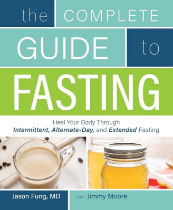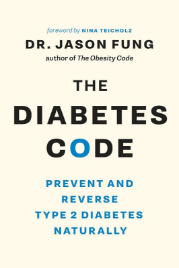In the world of nutrition and fitness, fasting has gained significant attention for its potential health benefits. However, with popularity comes misconceptions and myths that can cloud our understanding of this practice. In this blog post, we aim to debunk common fasting myths, separating fact from fiction and providing you with a clear understanding of the truth behind fasting.

Importance of Debunking Fasting Myths
As fasting gains traction as a popular dietary approach, it is crucial to address the misconceptions surrounding it. By dispelling these myths, we can empower individuals to make informed decisions about their health and well-being, without being swayed by misguided beliefs. So, let's dive in and bust some fasting myths!
Myth 1: Fasting Leads to Muscle Loss

One prevalent myth surrounding fasting is that it leads to muscle loss. However, scientific research indicates that during short-term fasts, the body primarily taps into its fat stores for energy while effectively preserving lean muscle mass. This preservation of muscle mass can be attributed to the body's adaptive response to fasting, which includes increased levels of growth hormone and muscle protein synthesis. In fact, fasting has been found to not only maintain muscle mass but also stimulate muscle protein synthesis, promoting muscle growth and preservation in the long run.
When we begin to fast, our body initially uses the glycogen stored in the liver for energy. Once these glycogen stores are depleted, the body switches to using stored fat for energy, a process known as ketosis. During this, the body breaks down fat into ketone bodies which provide the necessary energy.
This process of ketosis largely protects the body's protein stores, and thus, the muscles. Yes, there is a minute amount of protein converted into glucose daily for certain necessary functions - a process called gluconeogenesis. However, this is predominantly sourced from recycled cells and other non-functional proteins, not muscle tissue. In fact, studies have shown that fasting may increase the levels of human growth hormone (HGH), which is essential for muscle growth and maintenance. As such, rather than leading to muscle loss, a properly managed fasting regimen can help maintain muscle mass while efficiently burning fat.
So, contrary to popular belief, fasting can actually have a positive impact on muscle health and overall body composition.
Myth 2: Fasting Causes Low Energy

Many believe that fasting leads to low energy, but this is another myth that needs to be debunked. The temporary feeling of fatigue or low energy during fasting is often due to the body adjusting to fat adaptation - the process where the body shifts from glucose to fat as its primary fuel source. This period of adjustment can cause feelings of tiredness as the body learns to efficiently break down fat for energy.
On the other side of this transition, however, is a state where the body can efficiently transform fat into energy. This state is not only sustainable but can actually lead to more stable and consistent energy levels throughout the day. No longer reliant on frequent meals for energy, the body can tap into its fat reserves and provide a steady supply of energy.
This explains why many top-performing athletes have started to train while fasting. They have discovered that fasting enhances their body's ability to utilize fat for energy, improving their endurance, and reducing their dependence on carbohydrate-rich foods. In fact, studies have shown that athletes who fast can have better performance, more efficient energy production, and improved recovery times.
So, while there might be a temporary dip in energy as your body adjusts, the end result is a more efficient energy transformation process that can even enhance physical performance. Hence, the claim that fasting causes persistent low energy is a myth.
Myth 3: Fasting Results in Overeating Afterwards

The belief that fasting inevitably leads to overeating afterwards is another misperception. It is essential to distinguish between the act of fasting and the dietary choices that follow it. Fasting is not a green light to consume excess calories or unhealthy foods once the fasting period ends. Instead, it is an opportunity to gain control over one's eating habits and to be mindful of how, when, and what we eat.
Some people may experience a surge of hunger post-fasting, but this does not necessarily translate to overeating. A study published in the Journal of the Academy of Nutrition and Dietetics found that many individuals do not consume extra calories to compensate for those missed during a fast. The key here is to make conscious, nutritious choices when breaking the fast. Nourishing your body with whole, healthy foods can not only satisfy your hunger but also provide the essential nutrients your body needs without leading to overeating.
It's worth noting that fasting doesn't provide a free pass to ignore calorie intake. Total calorie consumption still matters, even when fasting. If the total calories consumed exceeds what your body burns, weight gain can still occur, despite fasting periods. Many individuals misconstrue fasting as an excuse to overindulge during eating periods, but this is a flawed approach. Just as it takes discipline to fast, it also takes discipline to make healthy, moderate food choices during non-fasting periods. A well-structured fasting plan should always incorporate balanced, portion-controlled meals to avoid overeating and ensure optimal health benefits.
Myth 4: Fasting Is the Same as Starving

The notion that fasting equates to starving is a common misconception. This confusion arises due to a lack of understanding of the body's metabolic processes during periods of fasting versus actual starvation. When fasting, the body shifts its energy source from glucose derived from daily food intake to stored body fat. This process, known as ketosis, naturally occurs after our glucose reserves are depleted. The body efficiently uses stored fat for energy, hence why fasting has been linked to weight loss.
Starvation, on the other hand, is a severe deficiency in caloric energy, nutrient, and vitamin intake, leading the body to be unable to maintain its normal functioning. It occurs when the body has exhausted its fat reserves and starts using proteins from muscles for its energy requirements. This can lead to loss of vital muscle mass and weakening of the body's systems.
Contrary to the starvation mode, during fasting periods, essential muscle mass is largely preserved. This is because, during a fast, our bodies release growth hormone, which helps to preserve muscle tissue and function. The body enters a state of starvation only when it is not provided with the necessary nutrients over an extended period, beyond the point at which all stored body fat has been depleted.
To sum up, fasting is a controlled voluntary abstinence from food for specific periods, during which the body utilizes stored fat for energy. In contrast, starvation is an involuntary lack of food for prolonged periods, causing the body to use its muscle tissue for energy once its fat reserves are depleted. Understanding this distinction is important for healthy and effective fasting.
Myth 5: Fasting Is Worse for Women

While it's true that fasting is not recommended for pregnant women due to the nutritional requirements of the growing fetus, this doesn't make fasting fundamentally worse for all women. The myth that fasting is worse for women appears to be a generalization based on this specific scenario. In reality, studies have shown that fasting can actually be beneficial for many women.
For example, research suggests that women may experience a faster metabolic rate increase during fasting as compared to men. This means that women could potentially burn fat more efficiently during a fast. Additionally, some studies indicate that intermittent fasting could help improve fertility in women by regulating hormonal imbalances.
It's also worth noting that fasting can have several other health benefits for women. These include improved mental clarity, enhanced immune function, decreased inflammation, and longevity.
However, as with any dietary practice, it's important for each individual to evaluate their own needs and circumstances. Especially for women with specific health conditions or who are pregnant, breastfeeding, or trying to conceive, it's crucial to consult with a healthcare professional before starting a fasting regimen. This is to ensure that the practice is safe and beneficial for their unique health profile.
Myth 6: Humans Are Supposed to Eat All the Time

Contrary to the popular belief that humans should eat every two hours to maintain blood sugar levels, our bodies are perfectly adapted to longer periods without food intake. This idea traces back to our ancestors who were hunters and gatherers. They didn't always have the luxury of regular meals – they sometimes had to survive days or even weeks without substantial food. To counter this, the human body developed the mechanism to store excess energy from food in the form of fat, which could be used during periods of scarcity.
The food industry has indeed played a significant role in driving the notion that we need to eat frequently. For instance, the widely accepted food pyramid, which many of us learned about in school, suggests a high intake of carbohydrates and frequent meals. However, this information is skewed, serving the interests of the food industry more than an individual’s health needs. If the human body genuinely required such frequent fueling, our species would have likely perished during periods of famine and scarcity in our evolutionary past.
Eating every two hours could lead to an excess calorie intake, contributing to weight gain and other health complications. Instead, a balanced diet filled with nutrient-dense foods, coupled with regular exercise, should be the cornerstone of maintaining health rather than an obsessive focus on eating intervals. However, like all health and dietary advice, it's important to remember that every individual is different. What works well for one person may not work for another, and any significant changes in diet or eating patterns should be discussed with a healthcare professional.
Myth 7: Fasting Is a Recent Trend

Fasting, as a form of spiritual discipline, is deeply intertwined with the traditions of many major religions, including Islam, Christianity, and Buddhism, each bringing a unique perspective on its practice and benefits.
In Islam, fasting, or "Sawm," is one of the Five Pillars and is observed during the holy month of Ramadan. From dawn till sunset, Muslims abstain from consuming food, drink, and other physical needs. It's a time for purification, practicing self-restraint, and focusing on faith.
Christianity also incorporates fasting into its practices, particularly during the season of Lent. This 40-day period leading up to Easter is often marked by abstinence from certain foods. Much like in Islam, fasting in Christianity is seen as a time for reflection, penance, and deepening one's relationship with God.
Contrastingly, in Buddhism, fasting takes on a less rigorous form. Monks and nuns following the Vinaya rules do not eat after the noon meal. This practice is less about the notion of self-denial found in Christianity and Islam, but more about self-discipline, mindfulness, and moderation.
Despite the differences in practices, a common thread runs through these religions - the belief in fasting's power to cleanse the spirit, bring believers closer to their divine entity, and serve as a means to exercise self-control. While they may not have understood the scientific rationale behind it, these ancient practices intuitively recognized the benefits that we are beginning to understand and appreciate scientifically today.
Myth 8: Fasting Slows Down Your Metabolic Rate

Research has shown that short-term fasting can actually increase your metabolic rate. Rather than slowing down the metabolism, fasting triggers a process known as metabolic switching, where the body shifts from using glucose-based energy to fatty acids and ketone bodies. This is a key reason why fasting is more effective at preventing rebound weight gain.
When you eat a meal, your body spends a few hours processing that food, burning what it can from what you just consumed. Because it has all of this readily-available, easy to burn energy in its blood stream, your body will choose to use that as energy instead of the fat you have stored. This is especially true if you just consumed carbohydrates/sugar, as your body prefers to burn sugar as energy before any other source.
However, when you fast, your body has no choice but to dip into your fat stores for energy, which can lead to weight loss. Furthermore, during a fast, your body also naturally produces more human growth hormone (HGH), which plays a crucial role in both fat loss and muscle gain. Lastly, fasting can lead to a reduction in insulin resistance, allowing your body to use insulin more effectively, which is beneficial for both weight loss and overall health.
In conclusion, rather than slowing down metabolic activity, fasting actually aids in revving it up. This not only facilitates weight loss but also presents several other health benefits, making it a beneficial practice for most healthy individuals.
Myth 9: Fasting Is Unhealthy

Contrary to the commonly held belief, fasting is not inherently unhealthy. On the contrary, it was utilized as a therapeutic strategy for managing diabetes over a century ago, well before the advent of insulin therapy. By restricting caloric intake temporarily, fasting was observed to decrease blood glucose levels, reducing the severity of diabetes symptoms.
Furthermore, fasting has been found to promote the process of autophagy, a cellular cleanup process that breaks down and recycles damaged cells and proteins that could lead to detrimental effects if allowed to accumulate. This process significantly contributes to the maintenance of healthy cells and tissues, thereby improving overall bodily health.
When it comes to tackling fatty liver disease, fasting can indeed play a considerable role. Fatty liver is primarily caused by an excess of fat in the liver, often due to overconsumption of calories, especially those from fats and sugars. Fasting can be quite beneficial in this context as it forces the body to use up stored fats for energy. The liver, being one of the major fat storage sites in the body, would naturally begin to use up its fat reserves during a fast, thus potentially reversing fatty liver disease, provided it has not progressed to a stage beyond control.
In essence, contrary to the myth, fasting is a natural and beneficial process that not only supports weight loss and metabolic health but also contributes to cellular health and the management of conditions such as diabetes and fatty liver disease.
Myth 10: Fasting Leads To Anorexia

It is important to clarify that fasting, when done in a healthy and controlled manner, does not lead to anorexia. Anorexia nervosa is a serious eating disorder characterized by an intense fear of gaining weight and a distorted body image.
Fasting, on the other hand, refers to voluntarily abstaining from consuming food or drink for a specific period of time. It is a practice that has been carried out for various reasons, including religious, cultural, and health purposes. When implemented responsibly and with proper guidance, fasting can have potential health benefits such as improved insulin sensitivity, cellular repair, and metabolic flexibility.
Anorexia nervosa is a complex mental health condition that involves psychological, emotional, and social factors. It is not caused by fasting itself, but rather by a combination of genetic, environmental, and psychological factors. It is crucial to differentiate between fasting as a deliberate practice and anorexia nervosa as a serious psychiatric disorder.
If you or someone you know is struggling with disordered eating or concerns about body image, it is important to seek professional help from qualified healthcare providers who specialize in eating disorders.
Conclusion
By debunking these fasting myths, we aim to provide clarity and empower you to make informed decisions about your health and nutrition. Fasting, when practiced responsibly, can offer numerous benefits. Remember, it is essential to listen to your body, seek professional guidance if needed, and find a fasting approach that works best for you. Embrace the power of knowledge and make informed choices on your journey towards a healthier lifestyle. To delve deeper into the topic of fasting, we enthusiastically endorse Dr. Jason Fung's books listed below. They offer valuable insights and a wealth of knowledge on the subject.


Our Free Tools
Discover the power of our free tools and calculators to supercharge your health routine!

